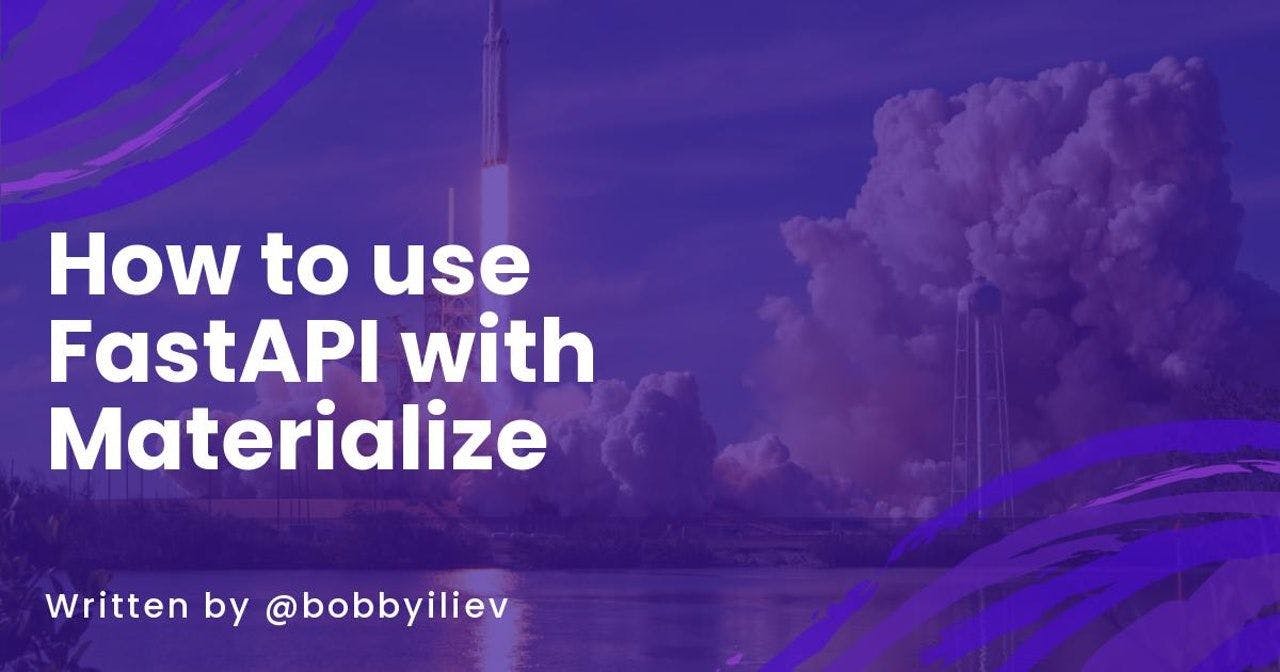288 reads
FastAPI with Materialize for Real-Time Data Processing: An Essential Guide
by
February 17th, 2022
Audio Presented by

I am a DevOps Engineer with a demonstrated history of working in the internet industry.
About Author
I am a DevOps Engineer with a demonstrated history of working in the internet industry.
Comments
TOPICS
Related Stories
10 Threats to an Open API Ecosystem
Jul 18, 2022
